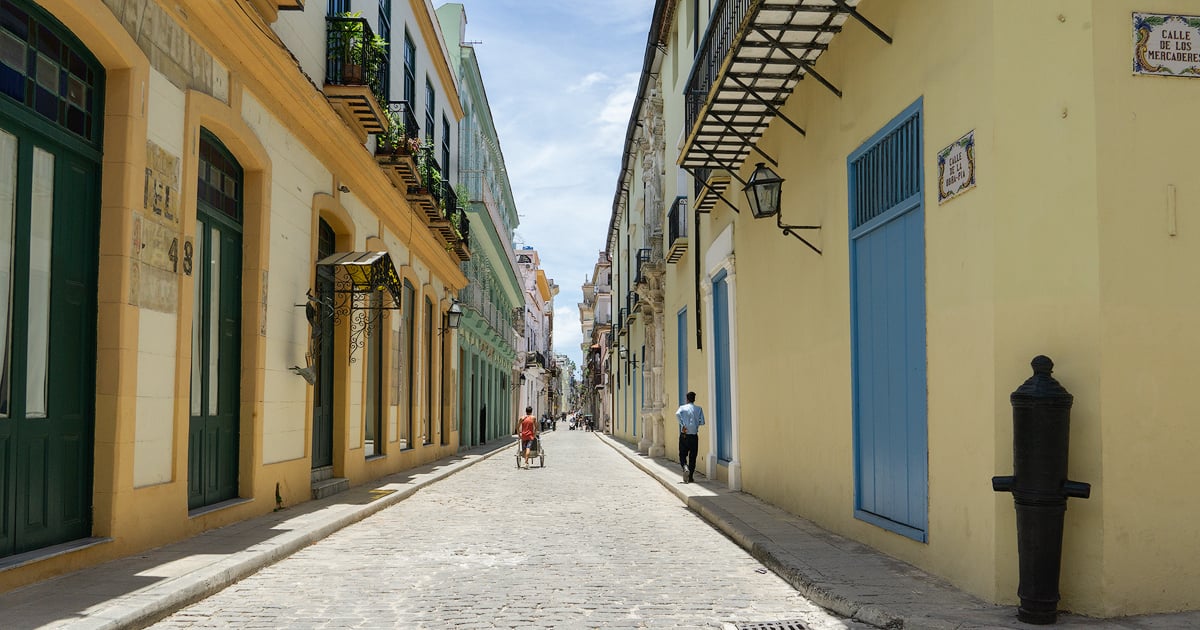
Related videos:
In 2024, Cuba welcomed a total of 2.2 million international tourists, marking a decline of 9.6% compared to the previous year and the lowest figure in two decades.
The National Office of Information and Statistics (ONEI) reported this result, which is well below the initial goal set by the Cuban government, which had projected to receive 3.2 million international visitors, and then revised it to 2.7 million.
The main source market for tourists to Cuba in 2024 was, as is customary, Canada, with 860,877 travelers.
They were followed by Russia, with 185,816 tourists, the United States (142,450), Germany (65,487), Spain (65,054), and Mexico (62,839).
Of the nine main sources of visitors, only Russia and Mexico saw a slight increase in the number of visitors compared to 2023, while other countries like Spain and Italy recorded significant drops of up to 27.1% and 15.9%, respectively.
The decline also affected Cubans living abroad, with a 17.8% drop in their visits to the island.
The decline in international arrivals to Cuba is attributed to a series of factors, including the serious economic and energy crisis the country is experiencing and the sanctions imposed by the United States, which complicate the process of obtaining quick visas for travelers who have visited Cuba in the last ten years.
Tourism is key to the economy of Cuba, as it significantly contributes to the Gross Domestic Product (GDP) and the inflow of foreign currency, being one of the most important sectors after professional services and remittances.
In 2023, the island welcomed 2.4 million international tourists, compared to 1.6 million in 2022, figures that are still well below the 4.2 million of 2019, the last year before the pandemic.
The tourism situation in Cuba contrasts with that of other Caribbean destinations, such as Punta Cana in the Dominican Republic and Cancún in Mexico, which have reached record numbers of visitors after the pandemic.
According to the specialized United Nations agency, UN Tourism, the volume of international travelers worldwide recovered in 2024 to pre-pandemic levels, reaching 1.4 billion arrivals.
Despite this, the regime continues to invest in hotels while neglecting other key sectors that require immediate investment, such as the energy industry, housing construction, healthcare, and education.
Frequently Asked Questions About the Tourism Crisis in Cuba in 2024
What is the current situation of tourism in Cuba in 2024?
Tourism in Cuba is facing a deep crisis in 2024, with a significant decline in the arrival of international tourists. The figure of 2.2 million tourists is the lowest in 17 years, excluding the pandemic years. This situation negatively impacts the Cuban economy, which relies heavily on this sector.
Why has the number of tourists in Cuba decreased?
The decline in tourism in Cuba is due to multiple factors, such as the economic and energy crisis, poor government management, diplomatic tensions, and competition from other Caribbean destinations like Punta Cana and Cancun. Additionally, infrastructure issues, frequent blackouts, and a negative perception of safety have adversely affected the experience of tourists on the island.
How has the tourist crisis impacted the Cuban economy?
The tourism crisis has had a significant impact on the Cuban economy, as tourism is one of the main sources of income for the country. The decrease in the number of visitors has led to a substantial reduction in sector revenue, worsening the fragile economic situation of the island.
What measures is the Cuban government taking to address the tourism crisis?
The Cuban government has attempted to diversify its tourism offerings, focusing on nature, cultural and historical tourism, as well as health tourism, in addition to the traditional sun and beach options. However, the lack of a clear and effective strategy has hindered the recovery of the sector, and investments in hotel infrastructure have not generated the expected impact due to a lack of demand.
What impact does the energy crisis have on tourism in Cuba?
The energy crisis in Cuba has negatively impacted the tourist experience, with frequent blackouts and shortages in hotels. This situation creates a negative perception among tourists, and while generators have been installed in some hotels, it has not been sufficient to counteract the adverse effects on visitors' experiences.
Filed under: